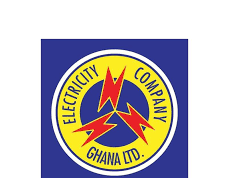Renting in Accra, the capital city of Ghana, is no game for the weak. You have to be emotionally, mentally and financially ready. The stress of finding the right place, the right agent, and a good location with easy access to commercial buses – popularly known as trotro – as a student, is no joke.
If you are lucky enough, you will find a place you love but your pocket will determine whether the house or room loves you back.
I remember in 2019 when I had admission to the Ghana Institute of Journalism as a freshman who had never lived in Accra before. The story was interesting and an eye-opener. Agents chopped my money even though I couldn’t afford the place we had in Osu.
I had not arrived in Accra yet because I was still getting things ready for school. In view of that, I asked an old high school friend who lived in Accra then to help me find a place to rent because I felt sharing a room with 4 other students in a private hostel, and paying GH¢1200 then was a cheat. My plan was to never fall for that, but rather rent a single room self-contained since my school had no hostels for students.
There is nothing wrong with sharing a hostel room with 4 other students, but I felt that was too much drama for me in one room.
After consulting my long-time school friend, she decided to take time off her busy schedule and find a place for me. At that time, I had never heard of people called agents who help you find a place or house to rent. My friend discussed that with me over the phone and I informed my mother about it.
My friend fed me with information on two payments to be made to the agents before and after we find a place. The first was called moving fee, and the other one was 10 percent of the rent – also known as 10 percent commission. This means that before the agent moves from his comfort zone and meet up with you in search of the place, you will pay for his movement, pay for every form of transportation both of you will use on your way to the location, and also pay 10 percent of the rent after you find a house.
If you are paying GH¢9,600 for a two-year rent, you will still pay GH¢960 to the agent who took you to the place.
I budgeted for a year because there was a lot to pay for as a freshman in the university. Sadly for me, the landlord refused to take my 1-year budget. He wanted 2-year advance payment, which I couldn’t afford. We pleaded on paying a year and a half, and promised to pay the rest in 6 months’ time but he still said no.
My question is why do we have to pay 2 years advance payment for a place we are yet to live in? Why can’t most rent in Accra be paid monthly? I know some landlords agree to that but most do not. Why can’t young people beginning life and students be allowed to pay rent monthly as a way of making life a bit easier as it is already hard?
This act of 2 years advance payment has shattered the dreams of many young Ghanaians renting a place. Most are homeless, others packed up in small hostel rooms containing 5 to 6 people.
Why can’t Ghanaians support fellow Ghanaians by making things – like accommodation – easier for students and young people?
The Ministry of Works and Housing of the Republic of Ghana, on 26th January, 2023, released a media advisory on the official launch of the National Rent Assistance Scheme (NRAS) in fulfilment of the manifesto promised by the Government of H.E Nana Addo Dankwa Akufo Addo.
The media advisory reads: “As part of the efforts to increase access to safe, secure and affordable rental housing for lower-income households and the youth across the country, the Government of Ghana has developed a scheme known as the National Rental Assistance Scheme (NRAS) to, among other things, facilitates accessibility and affordability of rental housing by ridding Ghanaians, particularly the low-to-middle income households and the youth, from the unfair burden of multi-year rent advance payments”.
The scheme, launched by H.E the Vice President Alhaji Dr Mahamudu Bawumia, on Tuesday, 31st January, 2023, at the Accra International Conference Centre (AICC), will make advance rent payment for eligible Ghanaians while they pay back on the first of every month. Applicant however, must meet the requirements of the scheme in order to enjoy the benefits.
Email [email protected]


















